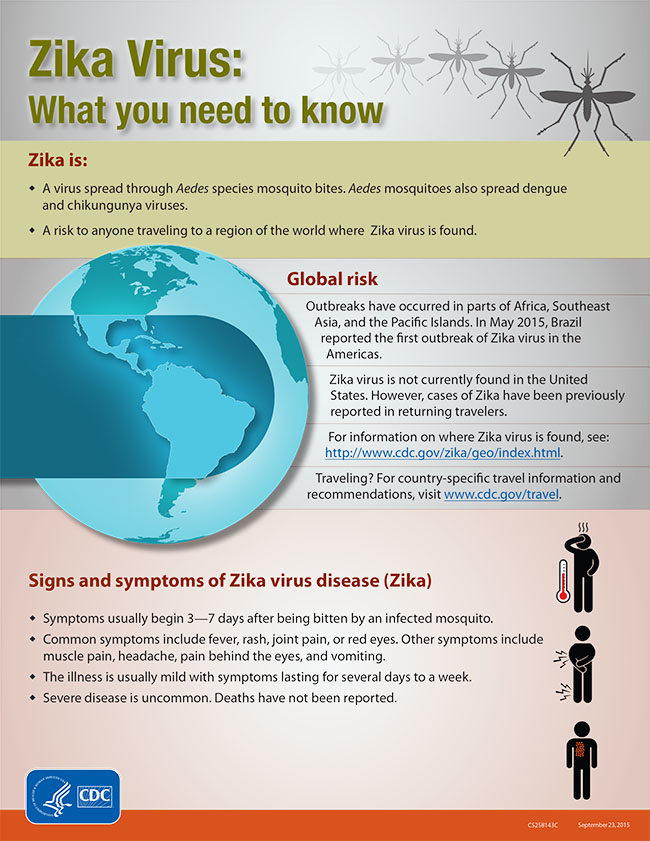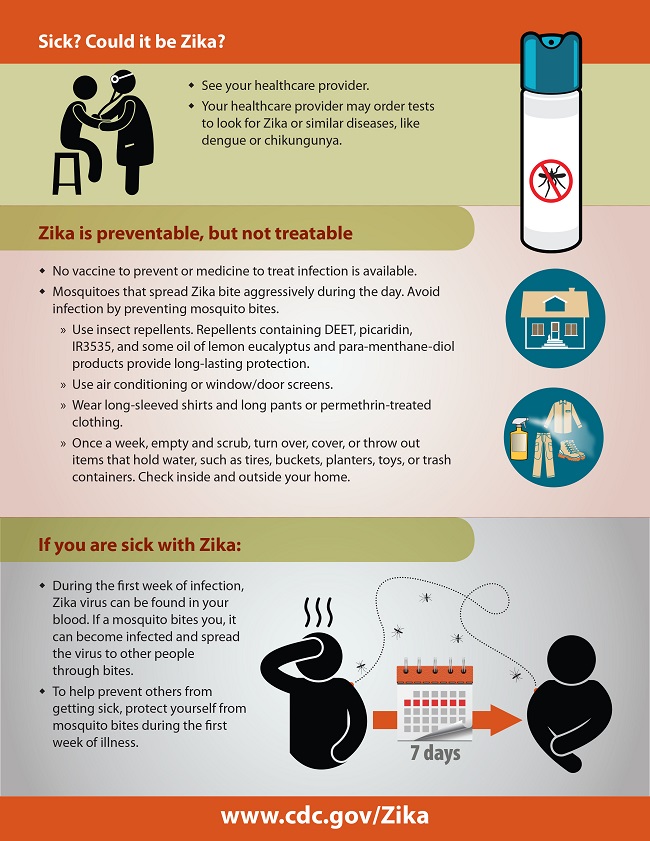April 8, 2020 by Adrienne Sylver
Health Officials Warn Pregnant Women of Zika Virus Dangers

State health officials are warning travelers, especially pregnant women, that the mosquito-borne Zika virus is quickly spreading throughout Latin America and the Caribbean, while confirming that three people in Florida — two of whom are in Miami-Dade County — have contracted the virus after traveling to South America.
Zika can cause birth defects, including underdeveloped brains. The virus can also cause a fever, rash, joint pain and conjunctivitis in adults. Last month, the first local case of Zika was reported in the Caribbean. Since then, Haiti and Martinique have reported ongoing transmissions of Zika, according to travel alerts issued by the U.S. Centers for Disease Control and Prevention (CDC).
“This can be very scary for pregnant women and the whole family,” says Darren Salinger, M.D., an OB/GYN (Obstetrics and Gynecology) at Homestead Hospital. “Out of abundance of caution, pregnant women should avoid or postpone travel to the areas where the Zika virus transmission is ongoing.”
The two Miami-Dade cases involve people who traveled to Colombia in December. Another case in Hillsborough County involves someone who traveled to Venezuela in December. There have been no cases of Zika virus transmission within the United States. However, cases of Zika have been previously reported in returning travelers.
The CDC has issued Zika travel warnings for Americans traveling to Central America, South America, Mexico, Puerto Rico and other destinations in the Caribbean.
“If pregnant women have to travel to these countries, they should speak to their doctors and follow all the precautions to avoid mosquito bites,” says Dr. Salinger. “They should also consult with their doctor upon returning and have an ultrasound performed upon their return.”
The CDC warnings urge travelers to protect themselves from mosquito bites. There is no vaccine to prevent or medicine to treat Zika. If you have been to the region and are experiencing symptoms, your doctor may order tests to look for Zika or similar diseases, like dengue or chikungunya.
Here are the CDC’s recommendations if your are traveling throughout this region:
- Cover exposed skin by wearing long-sleeved shirts and long pants.
- Use EPA-registered insect repellents containing DEET, picaridin, oil of lemon eucalyptus (OLE), or IR3535. Always use as directed.
- Pregnant and breastfeeding women can use all EPA-registered insect repellents, including DEET, according to the product label.
- Most repellents, including DEET, can be used on infants 2 months and under.
- Use permethrin-treated clothing and gear (such as boots, pants, socks and tents). You can buy pre-treated clothing and gear or treat them yourself.
- Stay and sleep in screened-in or air-conditioned rooms.
The CDC is also urging healthcare providers to ask all pregnant women about recent travel. Those with a history of travel to an area with Zika virus transmission, and who have reported two or more symptoms consistent with Zika, should be tested for the virus in consultation with their state or local health department, the CDC says. Those symptoms include acute onset of fever, maculopapular rash (reddish, small bumps on the skin), arthralgia (joint pain), or conjunctivitis (pinkeye) during or within 2 weeks of travel. Pregnant women who have ultrasound findings of fetal microcephaly (abnormal smallness of the head) should also be tested for Zika, the CDC says.
See the CDC’s infographic below. Here is more information about the Zika virus from the CDC.
top stories














There are no comments